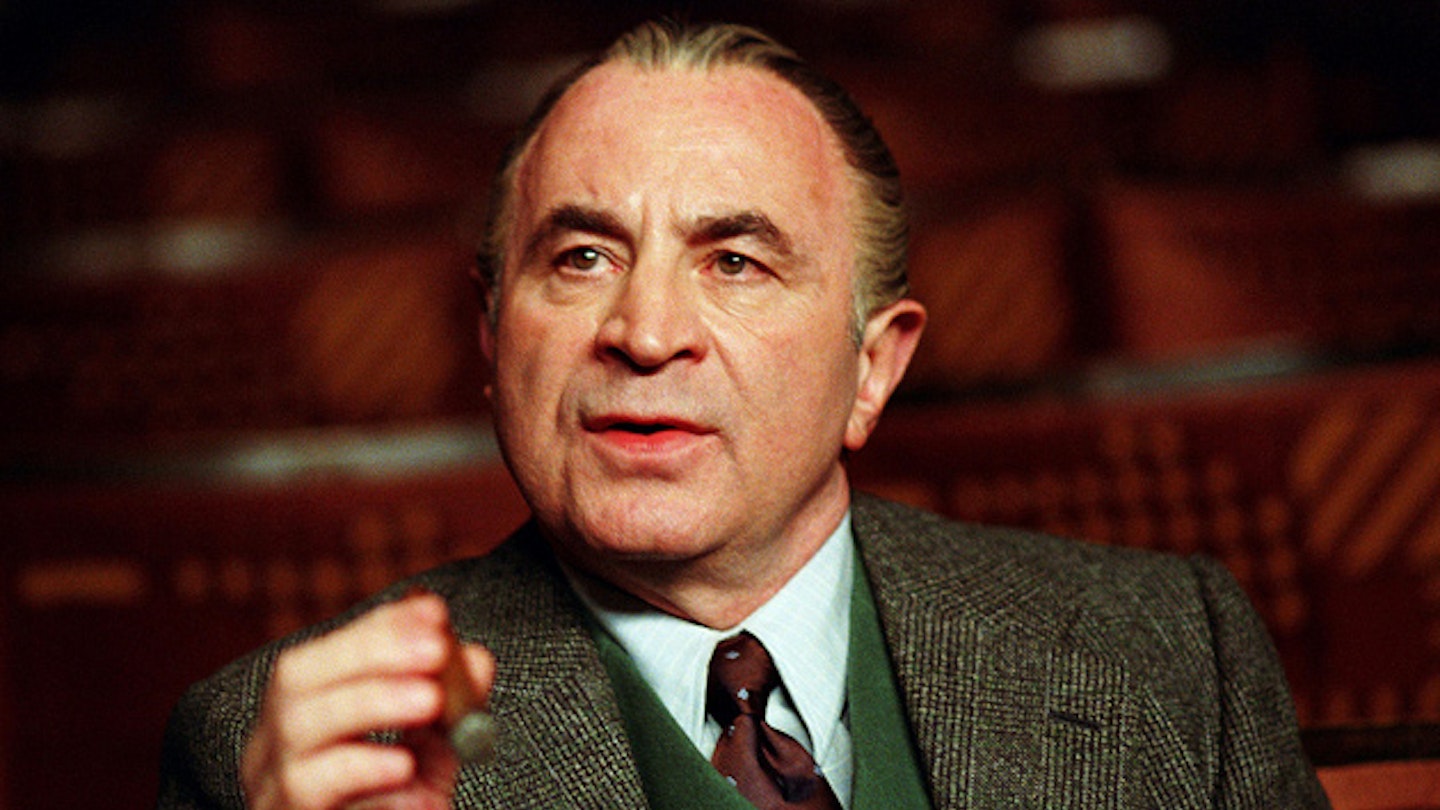It's pretty rare that a little old gangster flick can upset whole governments, but in 1980 The Long Good Friday had Margaret Thatcher's gang of goons up in arms. There was the fact that, at the height of the Irish troubles, the IRA were portrayed as an invincible force whom even London's finest thugs couldn't defeat, and they were working outside the law. What hope, it covertly pondered, did the British army have? It was hardly a message that the Tories would be particularly keen on being put about.
The ensuing brouhaha would delay the film's release by a year, but it did manage to distract the politicos from the fact that there was a much more damaging, gleefully insinuating edge to Barrie Keeffe's script. Harold Shand (Hoskins) is pretty much the epitome of what many saw as Thatcherite values. He's a self made man, the "boy from Putney" turned millionaire entrepreneur, an implacable patriot engaged in an ambitious property development which looks suspiciously like the jewel in her ironnesses crown, Docklands. He's the ultimate Yuppie, greedy, nouveau riche tasteless (catch the flat) and corrupt — but he packs heat. Not at all bad for a film its director described as, "Just a damned good gangster movie."
Plotwise TLGF is pretty much a straightforward account of a South London turf war between Shand and his "Corporation" and a group of unknown insurgents who take it upon themselves to launch their attack on the very day that he welcomes a group of American businessmen, intent on wooing them into investing in his dockside development. Shand's gay (reasonably adventurous for 19 8 0) best mate is stabbed to death in an unfortunate swimming pool cruising incident; his Roller along with its driver are detonated (in a sequence that is possibly the finest example of the "unexpected car-bomb" cliche shot); explosive devices turn up in his casino; and they even have the temerity to reduce his favourite pub to rubble. After rounding up the usual suspects and, in one of the film's most memorable sequences, dangling them from meat-hooks, he discovers that the enemy are the IRA engaged in a revenge operation triggered by some unauthorised dealings.
Keeffe's script is a marvellously crafted piece of writing. Not only are there the expertly realised set pieces: the infamous meat-hook sequence; "Razors" (aka The Human Spirograph, heavy P.H. Moriarty) torturing of Erroll the "Brixton Ponce" (Paul Barber) and Harold's brutal stabbing of right hand thug Jeff (Derek Thompson, later to crop up as nurse Charlie in Casualty), but gangster dialogue doesn't come much saltier than Harold Shand's. There's the point at which he finds his best friend's body is to be transported to the abattoir in an ice-cream van. "Well there's a lot of dignity in that," he protests. "Coin' out on a raspberry ripple!" There's his astute critique of La Cosa Nostra after they abandon his blood drenched business. It's a pretty rare trick that a little old gangster movie can upset whole governments venture, "The Mafia? I shit 'em!". Or there's his impeccable way with a threat, "I'll have his carcass ; dripping by midnight," he hisses of an associate.
It's Hoskins' ability to leap deftly from Minder style witticisms to steel-hearted promises of bloody retribution that is the powerhouse of the movie. "His acting came straight ; from the gut with the brain slightly guiding it," remembers Mackenzie. He's a complex, deeply human character moving from toad-like pompous speechifying to bewilderment and rage as his empire collapses with remarkable ease from an actor who previously had only popped up in the likes of Royal Flash and Zulu Dawn, (plus adult literacy TV programme On The Move).
Hoskins' ballistic performance sometimes distracts audiences from the other acting strengths of the movie. Helen Mirren is superb as the devoted wife attempting to hold everything together and there's a rogue's gallery of classy supporting players including more than a few real-life London hoods. ("Not that I'd know," one of them is reported to have informed Mackenzie, "but you don't stab someone like that.") And for cameo spotters the real prize is not Pierce Brosnan (the IRA man with the gun at the end of the movie) but Dexter Fletcher — later himself to star in Lock, Stock And Two Smoking Barrels which revived the British gangster genre at the end of the 90s — as one of the kids outside the ponce's house.
But the icing on the cake is Hoskins' astounding, wordless performance in the movie's final shot as, bundled into a car he realises that he's taken on a foe far too powerful, and that whatever awaits is at least as bad as a meat-hook. Every emotion is visible from shock to a final, ambivalent expression that might be rueful acceptance. It's as good a performance as any in a gangster movie and why, in 1997, Empire voted The Long Good Friday best British movie ever made. And no Lock Stock, or anaemic imitation, is likely to change that.
